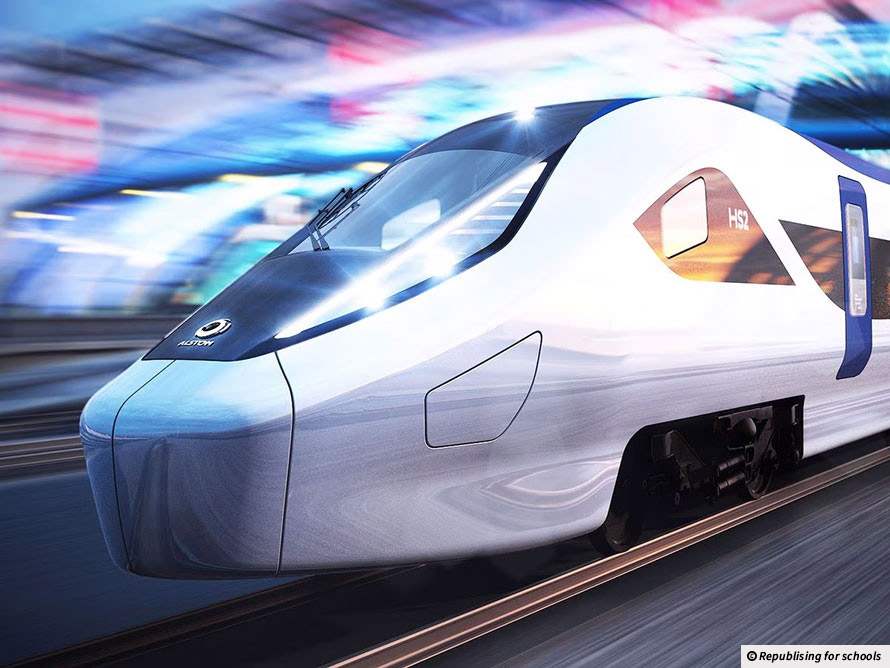Is the North-South divide getting worse? As Britain's prime minister delivers the death knell for a long-anticipated high-speed rail line, many worry that the north of England is being thrown under the bus — or train.
Multibillion trains going nowhere after all
 Off the rails: Rishi Sunak announced plans to scrap the HS2 rail link to Manchester.
Off the rails: Rishi Sunak announced plans to scrap the HS2 rail link to Manchester. Glossary
George Orwell - Real name Eric Arthur Blair, a world-renowned 20th-century novelist, most famous for his political novels Animal Farm and 1984.
Elizabeth Gaskell - An English novelist of the Victorian era.
Benjamin Disraeli - A 19th-Century politician who was Britain’s first and only prime minister of Jewish origin.
Industrial Revolution - A period of sudden, rapid industrialisation that transforms a country from an agricultural to an industrial economy.
Congestion - Overcrowding or blocked.
Inverse - Opposite to something else.
Entrenched - Has existed for a long time and will be hard to change.
Soviet - Relating to the Soviet Union, a powerful group of communist republics, the biggest being Russia, that existed from 1922 to 1991.
Rust belt - A region of the USA, known for manufacturing, steelmaking and coal, that saw economic decline from the 1950s. It includes a large part of the Midwest.
